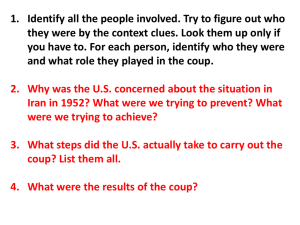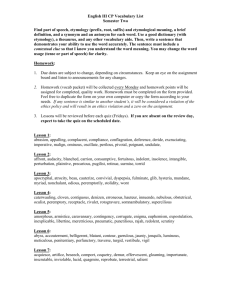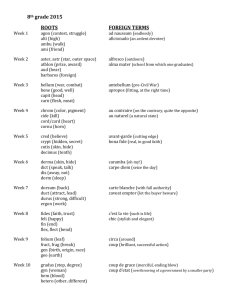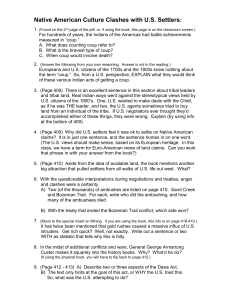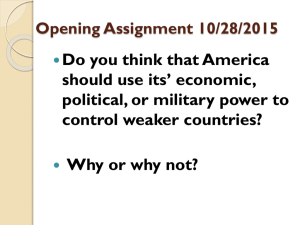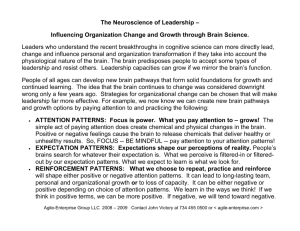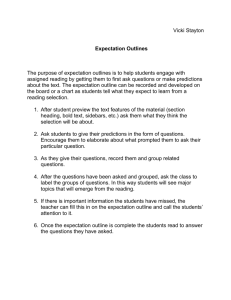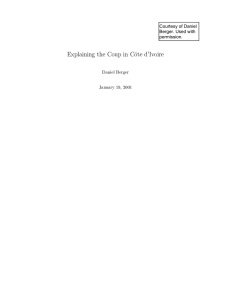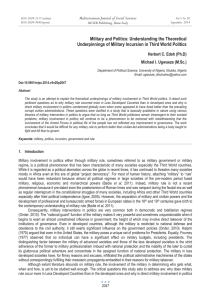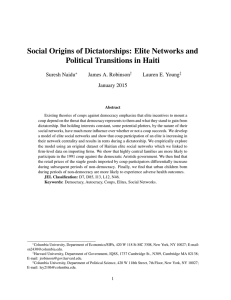Discourse Markers and ‘Unexpectedness’
advertisement
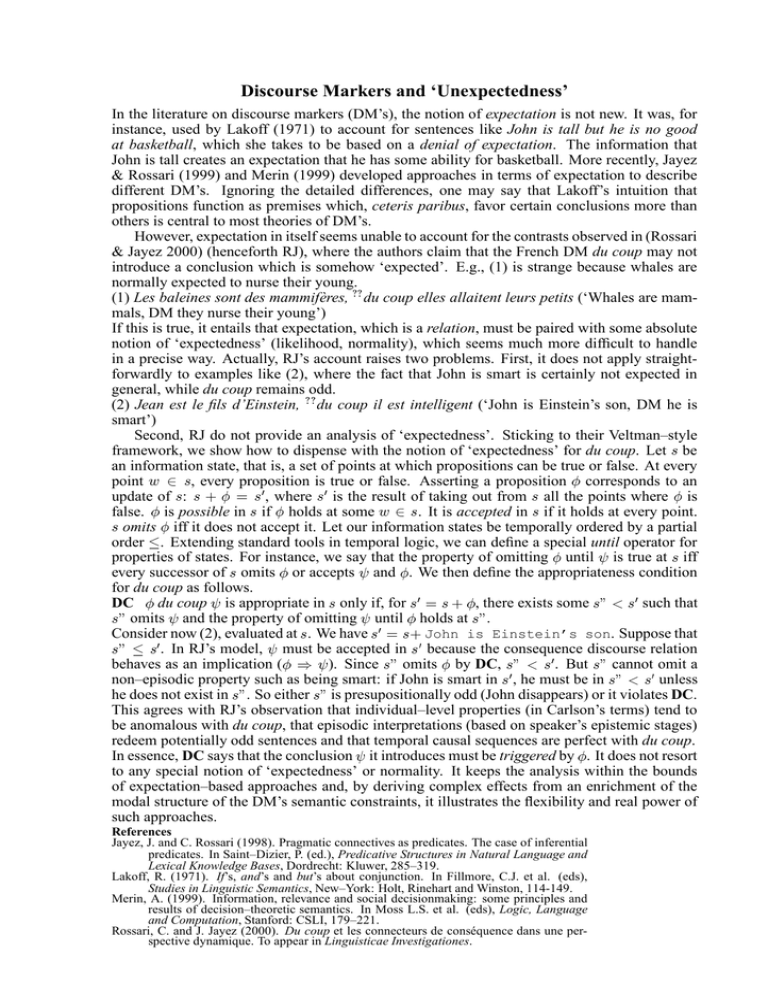
Discourse Markers and ‘Unexpectedness’ In the literature on discourse markers (DM’s), the notion of expectation is not new. It was, for instance, used by Lakoff (1971) to account for sentences like John is tall but he is no good at basketball, which she takes to be based on a denial of expectation. The information that John is tall creates an expectation that he has some ability for basketball. More recently, Jayez & Rossari (1999) and Merin (1999) developed approaches in terms of expectation to describe different DM’s. Ignoring the detailed differences, one may say that Lakoff’s intuition that propositions function as premises which, ceteris paribus, favor certain conclusions more than others is central to most theories of DM’s. However, expectation in itself seems unable to account for the contrasts observed in (Rossari & Jayez 2000) (henceforth RJ), where the authors claim that the French DM du coup may not introduce a conclusion which is somehow ‘expected’. E.g., (1) is strange because whales are normally expected to nurse their young. (1) Les baleines sont des mammifères, du coup elles allaitent leurs petits (‘Whales are mammals, DM they nurse their young’) If this is true, it entails that expectation, which is a relation, must be paired with some absolute notion of ‘expectedness’ (likelihood, normality), which seems much more difficult to handle in a precise way. Actually, RJ’s account raises two problems. First, it does not apply straightforwardly to examples like (2), where the fact that John is smart is certainly not expected in general, while du coup remains odd. (2) Jean est le fils d’Einstein, du coup il est intelligent (‘John is Einstein’s son, DM he is smart’) Second, RJ do not provide an analysis of ‘expectedness’. Sticking to their Veltman–style framework, we show how to dispense with the notion of ‘expectedness’ for du coup. Let be an information state, that is, a set of points at which propositions can be true or false. At every point , every proposition is true or false. Asserting a proposition corresponds to an update of : , where is the result of taking out from all the points where is false. is possible in if holds at some . It is accepted in if it holds at every point. omits iff it does not accept it. Let our information states be temporally ordered by a partial order . Extending standard tools in temporal logic, we can define a special until operator for properties of states. For instance, we say that the property of omitting until is true at iff every successor of omits or accepts and . We then define the appropriateness condition for du coup as follows. DC du coup is appropriate in only if, for , there exists some such that omits and the property of omitting until holds at . Consider now (2), evaluated at . We have John is Einstein’s son. Suppose that . In RJ’s model, must be accepted in because the consequence discourse relation behaves as an implication ( "!# ). Since omits by DC, $% . But cannot omit a non–episodic property such as being smart: if John is smart in & , he must be in ' unless he does not exist in . So either is presupositionally odd (John disappears) or it violates DC. This agrees with RJ’s observation that individual–level properties (in Carlson’s terms) tend to be anomalous with du coup, that episodic interpretations (based on speaker’s epistemic stages) redeem potentially odd sentences and that temporal causal sequences are perfect with du coup. In essence, DC says that the conclusion it introduces must be triggered by . It does not resort to any special notion of ‘expectedness’ or normality. It keeps the analysis within the bounds of expectation–based approaches and, by deriving complex effects from an enrichment of the modal structure of the DM’s semantic constraints, it illustrates the flexibility and real power of such approaches. References Jayez, J. and C. Rossari (1998). Pragmatic connectives as predicates. The case of inferential predicates. In Saint–Dizier, P. (ed.), Predicative Structures in Natural Language and Lexical Knowledge Bases, Dordrecht: Kluwer, 285–319. Lakoff, R. (1971). If’s, and’s and but’s about conjunction. In Fillmore, C.J. et al. (eds), Studies in Linguistic Semantics, New–York: Holt, Rinehart and Winston, 114-149. Merin, A. (1999). Information, relevance and social decisionmaking: some principles and results of decision–theoretic semantics. In Moss L.S. et al. (eds), Logic, Language and Computation, Stanford: CSLI, 179–221. Rossari, C. and J. Jayez (2000). Du coup et les connecteurs de conséquence dans une perspective dynamique. To appear in Linguisticae Investigationes.
